Government Heeds EWMI ACCESS Recommendations to Counter Anti-Western Propaganda in a Unified Strategy
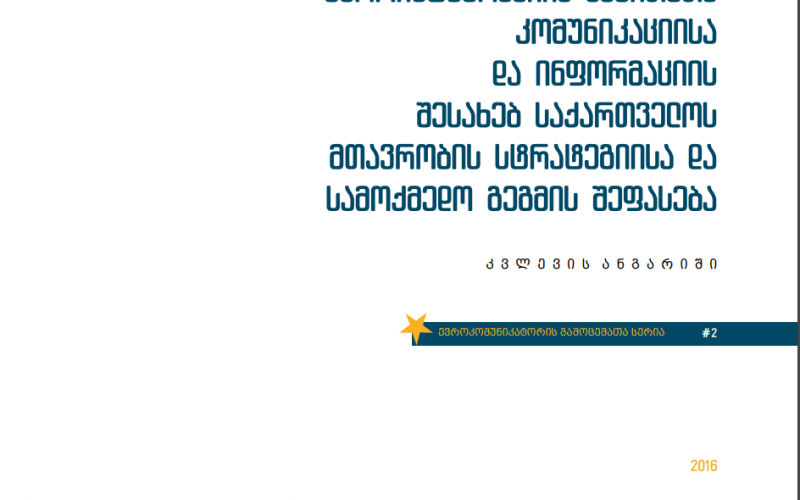
The Government of Georgia has adopted a national communication document that reflects policy recommendations that EWMI ACCESS and its grantee – Media Development Foundation (MDF) have been advocating for almost a year. On April 13, 2017, the Cabinet of Ministers endorsed what is called Communication Strategy of the Government of Georgia on Georgia’s EU and NATO Membership for 2017-2020. The document replaces the outdated Government Strategy for Communication and Information concerning European Integration Issues 2014-2017.
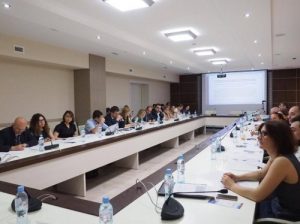
Working Group Meeting
The new Strategy aims to “ensure the preservation of the public’ high conscious support” for Georgia’s strive for NATO and EU membership. Unlike the previous document, the new Strategy of the Georgian government recognizes the problem of Russian propaganda and commits to counter it.
In recent years, pro-Russian political parties, recently-founded NGOs and some media outlets have been feeding Georgian citizens with disinformation and “fake news” on the alleged dangers coming from the US, the EU, NATO and “the West”. These actors portray Georgia’s western aspirations as a threat to its national identity, religion, economy and security.
To respond to this trend, since 2015, EWMI ACCESS has been supporting a media watchdog, the Media Development Foundation (MDF) which works to debunk widespread anti-western myths, and help the government to make its communication policy evidence-based and tailored to existing challenges and needs. With ACCESS support, MDF conducted an assessment of the Government’s Communication Strategy 2014-2017 and its respective annual Action Plans, and found many shortcomings both in the design and implementation of the state communication policy. EWMI ACCESS and MDF have argued that the government’s sole focus on awareness-raising of citizens on European integration reforms and benefits was inadequate to the threat posed by intense multi-facetted Russian (dis)information warfare. MDF criticized the fragmented calendar-based activities which were not part of a unified strategy. In the study, MDF advised the Government to take a systemic and holistic approach to Russia’s disinformation threats though: coordinating messages on all levels of the governance, pursuing a unified strategy for communicating both on NATO and EU integration issues, and actively responding to misleading messages/“fake news” based on the communication objectives and effective channels derived from the public opinion polls.
In May of 2016, MDF presented its findings to the government officials. Since then, ACCESS has been working with MDF to continue advocacy using various platforms for policy influence, including joining the Working Group of CSO representatives and international experts to provide recommendations for drafting the new government communication strategy.
Thanks to EWMI ACCESS and MDF input, as well as efforts of the working-group member CSOs, the final text of the Government Communication Strategy for 2017-2020 includes “prevention and reduction of the influence of anti-Western propaganda on the population” as one of the key national objectives. Besides, the Strategy pledges to use “consolidated government approach” of spreading counter-propaganda messages based on “the results of public opinion polls, analysis of target groups, key misperceptions and information gaps in society”.
Following MDF’s and other CSOs’ critical conclusions on the previous annual Action Plans, the Office of State Minister also decided to revise the future Action Plans. EWMI ACCESS will take the lead to organize pubic discussion to ensure CSO input in the new Action Plan.



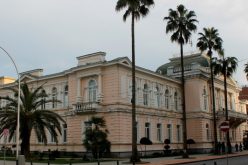
![The Review of the [second] Draft Law of Georgia on Registration of Foreign Agents and On Amendments to the Criminal Code of Georgia](http://ewmi-activism.org/wp-content/uploads/2023/03/research-last-scaled-248x165_c.jpg)
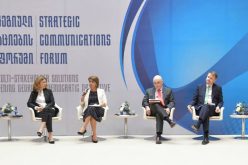
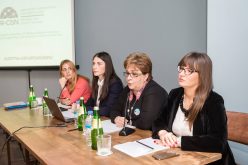
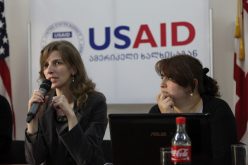

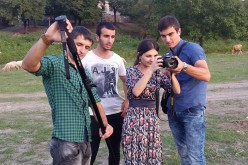




Leave a Reply